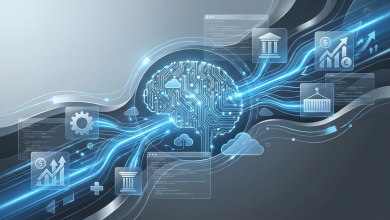
The real estate industry is in the middle of a digital transformation, and lease agreements, long one of the most time-consuming and paperwork-heavy aspects of renting or investing, are not immune to change. Traditionally, negotiating, drafting, and managing leases involved endless legal jargon, stacks of documents, and multiple rounds of back-and-forth between landlords, tenants, and attorneys. But the rise of artificial intelligence (AI) and digital real estate platforms is reshaping this landscape. Industry leaders such as James G Koman, a seasoned real estate developer and investor, have been at the forefront of embracing technology to streamline property operations and enhance tenant experiences.
In the coming years, we can expect lease agreements to become smarter, more transparent, and more accessible thanks to the integration of cutting-edge technology. Here’s how AI and digital platforms are reinventing lease agreements for landlords, tenants, and property managers alike.
1. Smart Lease Drafting with AI
One of the most immediate benefits of AI in real estate lies in document automation. Lease agreements often contain repetitive clauses and standard terms that don’t need to be rewritten from scratch every time. AI-powered contract generators are already capable of analyzing property details, local regulations, and user preferences to create tailored lease documents in minutes.
In the future, these tools will become even more sophisticated. Imagine an AI system that not only drafts a lease but also flags missing compliance requirements, suggests optimal rent terms based on market data, and integrates legal language that aligns with both state and federal regulations. This reduces the risk of errors and ensures that all parties enter into agreements that are legally sound and mutually beneficial.
2. Predictive Insights for Lease Terms
Digital platforms increasingly rely on data to make smarter decisions, and lease agreements are no exception. AI algorithms can analyze historical rental data, tenant payment histories, and local market conditions to predict optimal lease terms.
For example, landlords could use predictive analytics to determine the most competitive rental price that balances profitability with occupancy. Tenants, on the other hand, might benefit from platforms that highlight neighborhoods with more flexible lease options or clauses tailored to remote workers. This data-driven approach creates leases that aren’t just standardized documents but adaptive agreements shaped by real-world conditions.
3. Transparent and Blockchain-Backed Contracts
Trust has always been a key issue in rental relationships. Blockchain technology, when integrated with digital platforms, promises to add a new layer of security and transparency to lease agreements.
Smart contracts, self-executing agreements coded on blockchain, can automate payments, late fees, and even maintenance requests. Once a condition in the contract is met (for example, the tenant pays rent on time), the blockchain system automatically updates, ensuring accountability for both sides. With every change or amendment recorded in an immutable ledger, disputes become easier to resolve, and fraud risks are minimized.
4. AI-Powered Lease Negotiations
Negotiating a lease can be intimidating, especially for first-time renters or small landlords without legal teams. Digital real estate platforms are beginning to incorporate AI assistants that guide users through negotiations.
Instead of spending weeks in discussion, an AI chatbot could suggest compromises, highlight standard practices in the local market, and help both parties settle on fair terms more quickly. These negotiation bots won’t replace human decision-making but will provide clarity and reduce misunderstandings. Ultimately, this could make lease agreements less adversarial and more collaborative.
5. Personalized Lease Management Platforms
Once a lease is signed, managing it effectively is just as important as drafting it. Digital platforms are evolving into comprehensive dashboards where landlords and tenants can access agreements, track payment histories, request maintenance, and even schedule renewals.
With AI integration, these platforms can proactively remind tenants about upcoming due dates, flag unusual payment patterns, or suggest renewal terms based on past behavior. For landlords managing multiple properties, AI lease management tools can consolidate data across leases, highlighting patterns and providing actionable insights.
6. Greater Accessibility and Inclusion
Lease agreements often feel inaccessible due to their legalistic language. AI-powered natural language processing (NLP) tools are now capable of translating complex legal terms into plain language, ensuring that tenants fully understand what they’re signing.
Future digital platforms may also include multi-language translation features, helping non-native speakers better navigate lease terms. This accessibility not only fosters inclusivity but also reduces the likelihood of disputes caused by misinterpretation.
7. Sustainability and Eco-Friendly Clauses
Another trend is the inclusion of sustainability clauses in leases, something AI and digital platforms can help standardize. As eco-friendly housing grows in demand, landlords may start including terms about energy-efficient upgrades, green certifications, or shared sustainability goals.
AI could monitor energy usage patterns in smart buildings and automatically adjust clauses related to utilities or environmental impact. Tenants might even benefit from reduced rent or incentives when they meet sustainability targets outlined in the lease.
8. Preparing for the Future
While AI and digital platforms hold tremendous promise, it’s worth noting that challenges remain. Privacy concerns, cybersecurity risks, and regulatory hurdles will need to be addressed before these technologies reach their full potential. Still, the trajectory is clear: lease agreements are moving from static, paper-heavy legal documents to dynamic, tech-enabled experiences.
For landlords, this shift means more efficiency, better tenant relationships, and fewer disputes. For tenants, it offers clarity, flexibility, and greater confidence in what they’re signing. As AI and digital real estate platforms continue to mature, the very definition of a lease agreement may evolve from a static contract into a living, interactive document that adapts to the needs of all parties involved.
Conclusion
The future of lease agreements is not just about digitization, it is about reinvention. AI, blockchain, and predictive analytics are transforming leases from cumbersome paperwork into streamlined, intelligent contracts. Digital real estate platforms are driving accessibility, transparency, and personalization, making the rental process more equitable and efficient for everyone.
As we look ahead, one thing is certain: technology will continue to reshape real estate, and lease agreements will be at the heart of this revolution. Those who embrace these innovations early, whether landlords, tenants, or property managers, will be best positioned to thrive in the rapidly evolving rental market.




